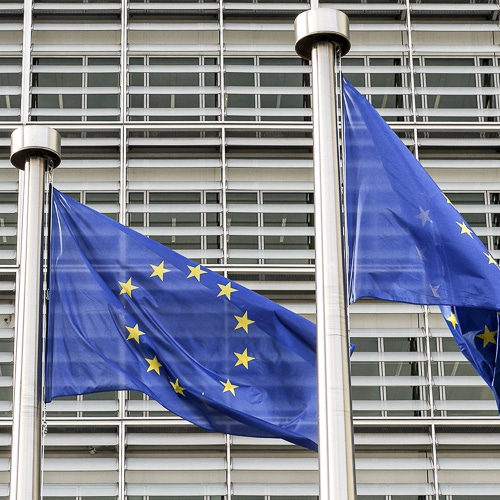
Europe is still reeling from the effects of COVID-19, with infection rates rising again in a number of markets. Efforts are being made to look ahead to the post-pandemic phase, and how different nations will be able to recover economically.
The European Commission (EC) has just issued a recommendation on how all 27 member states of the European Union (EU) could ensure a timely and more cost-effective way of deploying very high-capacity broadband connectivity infrastructure, including 5G.
Figure 1:  Raising the flag: The European Commission is proposing a common approach through a "toolbox" that defines best practices.
Raising the flag: The European Commission is proposing a common approach through a "toolbox" that defines best practices.
The EC is proposing a common approach by means of a "toolbox" that defines best practices, including "realistic measures" to assign radio spectrum for 5G networks under investment-friendly conditions.
It also aims to facilitate the deployment of very high capacity fixed and wireless networks "by, for example, removing unnecessary administrative hurdles and streamlining permit granting procedure."
The aim is to agree on a toolbox by March 30, 2021. The commission has requested each member state provide it with a roadmap for implementation by April 30, 2021, reporting back by the same date the following year.
Closely linked to this recommendation, the EC has also proposed a new regulation for the European High Performance Computing Joint Undertaking, "to maintain and advance Europe's leading role in supercomputing technology."
The commission said the proposal "would enable an investment of €8 billion in the next generation of supercomputers – a substantially larger budget compared to the current one."
Viral connectivity
The EC noted that the COVID-19 crisis "has shown that connectivity is essential for people and businesses," and that "very high capacity networks" have been enabling remote working and schooling, healthcare, and personal communication and entertainment.
The commission said the pandemic "has changed the economic outlook for the years to come. Investment and reforms are needed more than ever to ensure convergence and a balanced, forward-looking and sustainable economic recovery."
Want to know more about 5G? Check out our dedicated 5G content channel here on Light Reading.
The request to ensure "timely and investment-friendly access" to future 5G spectrum will no doubt be welcomed by mobile operators. However, in countries like Germany and Italy, eye-wateringly expensive 5G auctions have already been carried out.
Individual member states are also grappling with their own post-pandemic recovery plans. For example, France is earmarking €240 million ($284 million) for fiber networks as part of its €100 billion ($118 billion) stimulus package.
Related posts:
— Anne Morris, contributing editor, special to Light Reading
Read more about:
EuropeAbout the Author(s)
You May Also Like




_International_Software_Products.jpeg?width=300&auto=webp&quality=80&disable=upscale)







